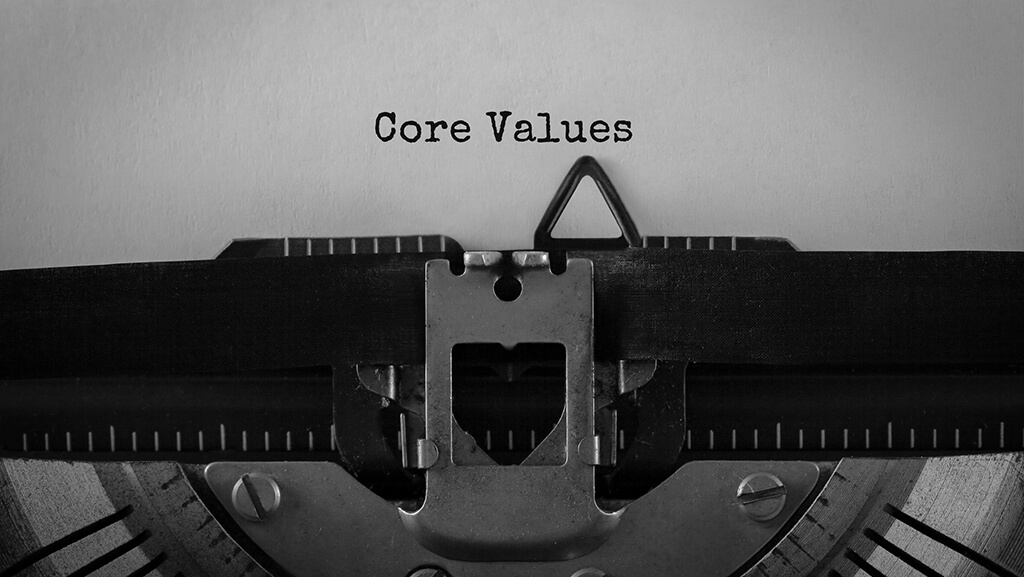Many years ago I heard a talk that stuck with me on the importance of knowing our values. Knowing our values allows us to make informed decisions when faced with important choices in life, and recognizing those who share our values or need our support and intervention. First, we need to discern what our values are. Too often today we are running from activity to activity, device to device, with little time to stop and ponder. Pondering unfortunately gets short shrift these days. I fondly recall walking through wooded areas after school or weekends during college with the beauty of nature and time to ponder. I often encourage students to take a little time for yourself and ponder what your values are – and be serious – use these criteria. In order for something to be a value I suggest it meet three criteria. First, it must be something you prize and cherish, notice I didn’t say something important. In today’s world everything is important and therefore only the truly important things are those we prize and cherish. Second, it must be something you act on consistently, not just when you want to or are in the mood, but even when it’s an effort. Thirdly, it must be something you publicly affirm. Affirm proudly even when others may question or laugh.
Think of the few things in your life that meet these criteria. A spouse, children, education, and faith. Now think of how you live out those three criteria. When you face what Dr. Elizabeth Kubler Ross called “those predictable crisis of adult life” you will be better prepared to act in a way you can be proud of and publicly affirm. You can also participate in relationships with family, friends, coworkers and others in ways that you can celebrate. Whether it is sharing the joy in a three year old neighbor discovering a new flower, or holding the hand of an elderly friend you just gave a ride to the polls to vote – in both cases you are living out your education, faith and truly being yourself. You’ll also be better able to be in relationship with family and others close to you when you truly recognize the values that make up who you are today and strive to be in the future. None of us are complete products, rather we are all works in progress. Knowing our values helps us clearly identify goals for where we are going and how we can get there. Knowing also helps us recognize we aren’t alone, but even in our individual values we can connect with people who we need and who need us. It is in this mutuality that we lend dignity to our relationships, through self-respect and respect and caring for others. Recognizing our values opens our hearts to also see values in others.
In an age where we are bombarded with messages of division aimed to highlight perceived differences it is more important than ever to step out of our echo chambers and recognize our common humanity and the many values we share. Think of this the next time you take a breath from the frenetic pace so many of us dash through each day, and see the value in pondering the things we truly cherish in relationships and strive for ourselves.
David P. Hoffman, DPS, CCE
Associate Professor, Ethics and Health Policy
